
Inflation reports are the main theme for next week, with figures set to be released from the US, Canada, Australia and Japan. Naturally, the US PCE inflation report sits at the top of the pile, but we’ll need to wait until Friday before it is released. RBA watchers on nervous of another hot CPI print from Australian on Wednesday, whereas BOC watchers are keen to see Canada’s inflation fall further to justify another cut. Toyo inflation is also released on Friday and it can provide a 3-week lead on nationwide CPI. But with the BOJ content with hiking at a snails pace, it seems unlikely to be much of a market mover.
EUR/USD traders might want to be on guard for headline risk surrounding French elections, as it is the last full week before votes are cast and that means polls could easily sway sentient for European markets.
EUR/USD technical analysis:
A close above 1.07 today will see EUR/USD snap a 4-week losing streak. At current prices, it is on track for a small bullish inside week, but with political headline risks and a US inflation report on tap, EUR/USD really could move either way by next week’s close. With that said, the 2-week RSI was overbought at its most bearish level since mid February last week. Should polls suggest Le Pen is not in for an easy win and US inflation comes in soft, we may have already seen a swing low.
The daily chart shows prices formed a sharp series of lower highs and lows, although now is trying to stabilise above 1.07. Should prices hold above last week’s low an gain momentum, it could hint at a near term trend reversal higher.
It is worth noting how well EUR/USD has played with round numbers over the past month. And that means we can keep it simple with upside or downside targets at 1.08 and 1.06 respectively, depending on how the news flow plays out.
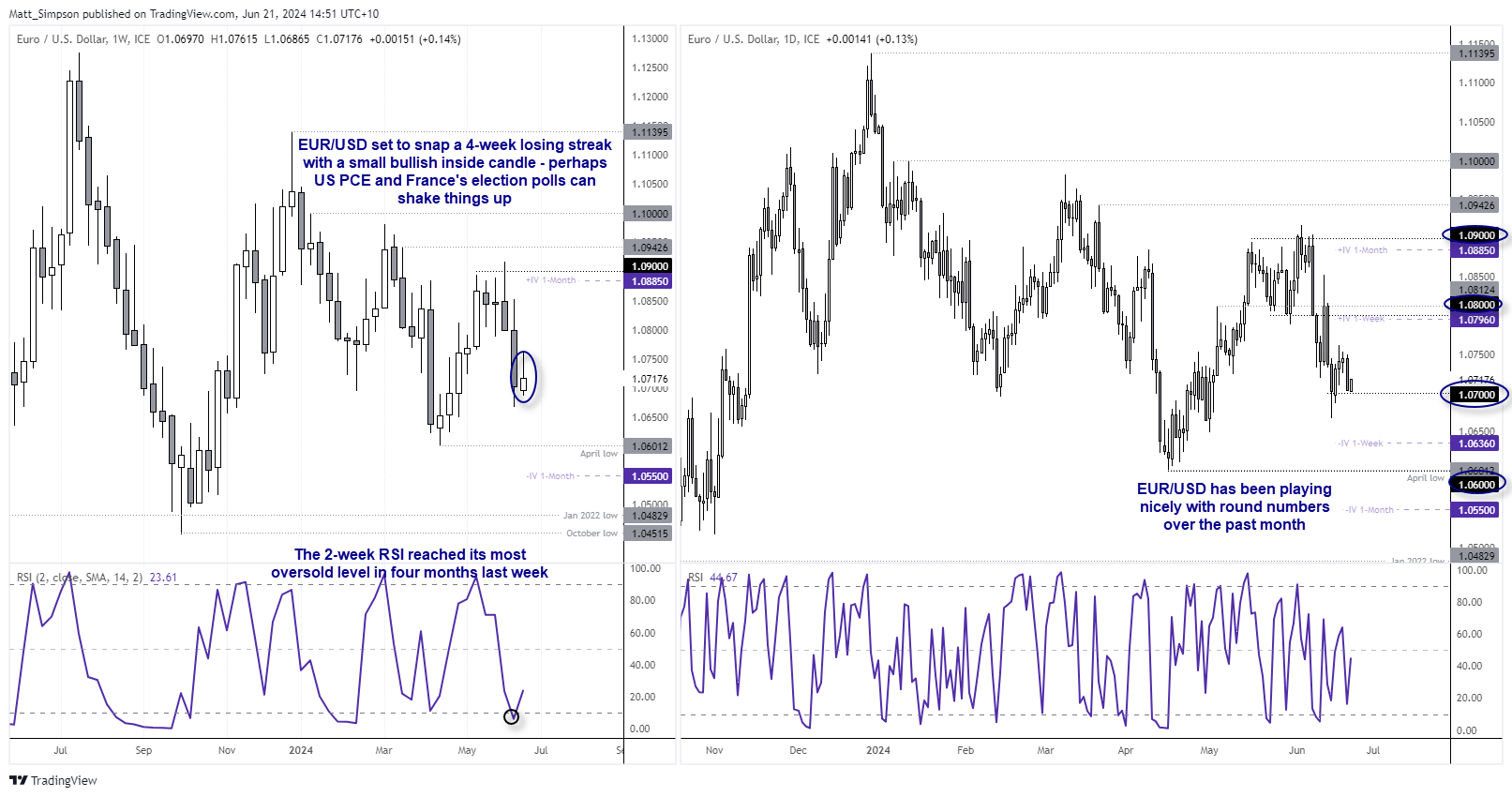
The week ahead: Calendar
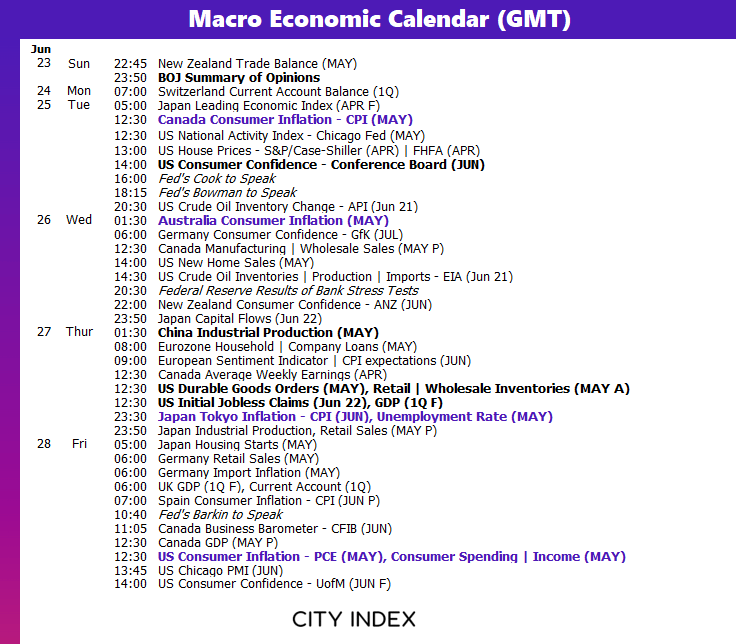
The week ahead: Key themes and events
- US PCE inflation report
- Australian monthly inflation report
- Canadian inflation report
- French election polls and headlines
Headlines and polls for the French election
France is set to hold its snap election on June 30th and July 7th. While this has capped volatility on EUR/USD to a degree, we could see it liven up again as we approach the elections as the headlines and polls roll in and sway sentiment.
Macron's decision to hold the elections is considered by many to be a high-risk gamble that could hand power to the far right, for the first time. Perhaps we should expect nothing less from an ex-investment banker at Rothschild & Co. Still, it is a big deal in Europe and an event that could have ramifications across the continent. Recent polls suggest that Marine Le Pen's party could become the largest in France, although it could fall short of an absolute majority. How these polls play out as we approach the election could significantly sway sentiment on the euro. Given that the euro weakened when Macron announced the snap election, an expected Le Pen majority could further weigh on it.
Trader’s watchlist: EUR/USD, EUR/GBP, DAX 40, CAC 40, STOXX 50
US PCE inflation report
Market pricing and the Fed’s narrative rarely seem to be on the same page. Fed fund futures continue to favour September as the Fed’s single cut of the year, whereas Fed members are jointly setting the stage for a December cut. I don’t think that really matters though, as markets are trying to decipher the Fed’s policy for 2025.And that’s where next week’s PCE report – the Fed’s preferred measure of inflation – comes in.
Core PCE rose just 0.2% m/m in April, beneath 0.3% expected and its slowest rate in five months. Super core PCE (core services less housing) rose 0.3% compared with 0.4% prior. And if it can slow to 0.2% m/m or lower, doves will get excited of more rate cuts arriving in 2025. And anyone rooting for more cuts needs to see the monthly prints slow as they lead the annual rates, which remain above the Fed’s 2% target but well beneath the Fed cash rate.
Naturally, the US dollar will be a focal point alongside yields. And a soft set of inflation figures could weigh on the dollar and support gold, risk, AUD/USD the likes of.
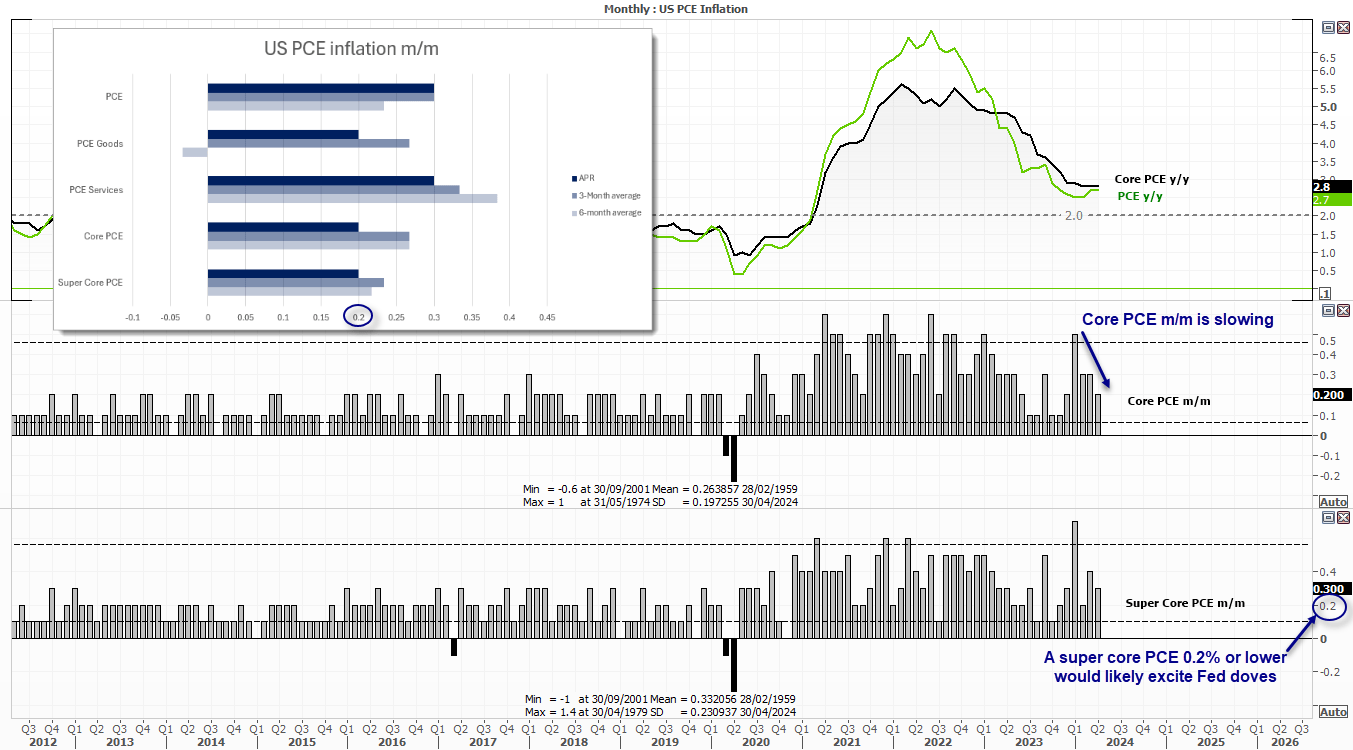
Australian inflation report
Whilst the quarterly CPI report is considered to be the more robust figures for the RBA, the monthly report still has its place. And this one could be quite important given the RBA came across as slightly more hawkish at their recent meeting.
Inflation rose to a 5-month high, and they were already well above the RBA’s 2-3% target range ahead of last month’s report. And should they tick higher even slightly, AUD/USD is likely to benefit on unwelcomed bets that the RBA may be forced to hike after all.
However, I do not get the impression that a hike is the RBA’s base case, and they will drag their heels until incoming data screams in their faces that they must hike. But that probably won’t prevent AUD/USD from jumping next week should CPI figure come in uncomfortably hot.
Trader’s watchlist: AUD/USD, NZD/USD, AUD/NZD, NZD/JPY, AUD/JPY, ASX 200
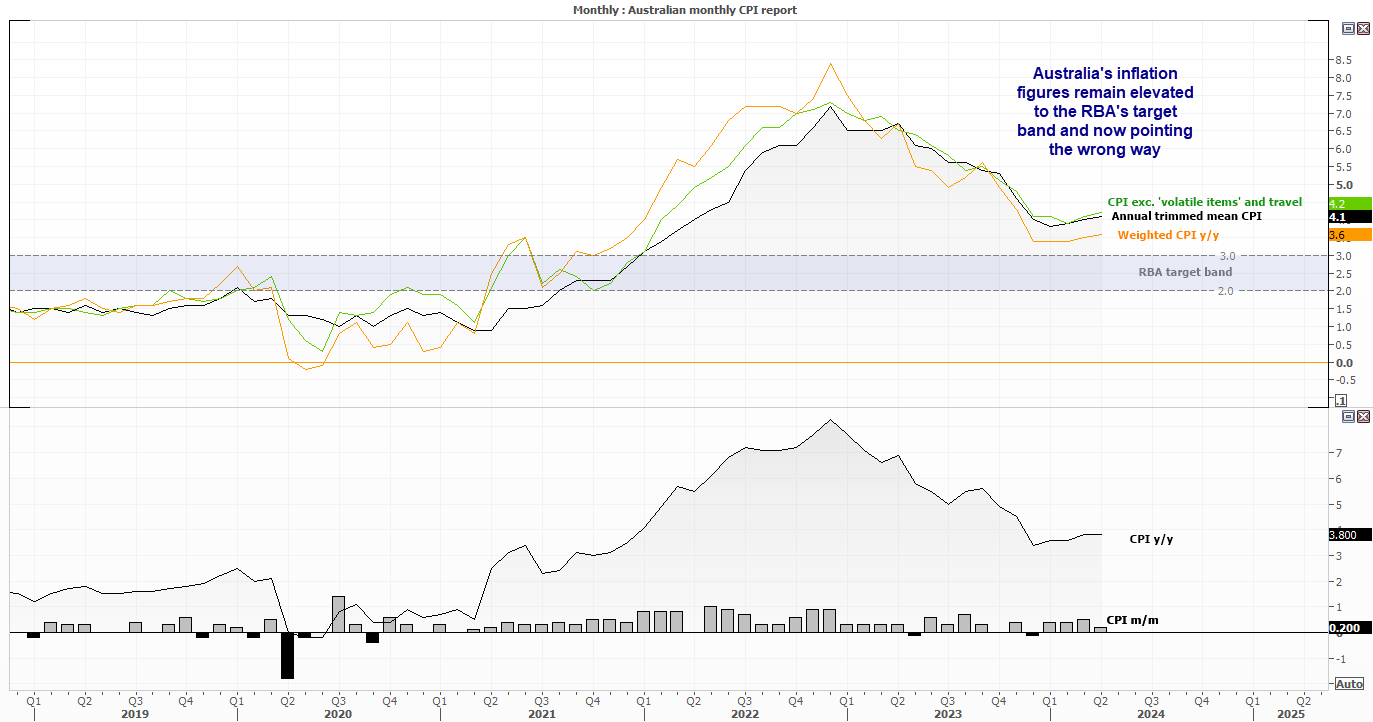
Canada’s inflation report
The Bank of Canada (BOC) cut their cash rate last week for the first time since the pandemic. Yet they erred on the side of caution and refrained from promising more, although looking at their inflation rates we could be on for another couple of cuts this year if trends persist. All three main inflation measures are within the BOC’s 1-3% target band, with core CPI 0.4 percentage points beneath the 2% mid band. So if we see inflation continue to soften next week, it could excite bets for their next cut to arrive in September.
The BOC announce their next interest decision on July 24th, and the 1-month OIS currently implies a 40% chance of a cut, or ~68% chance of a cut by the end of the year.
Trader’s watchlist: USD/CAD, CAD/JPY, NZD/CAD
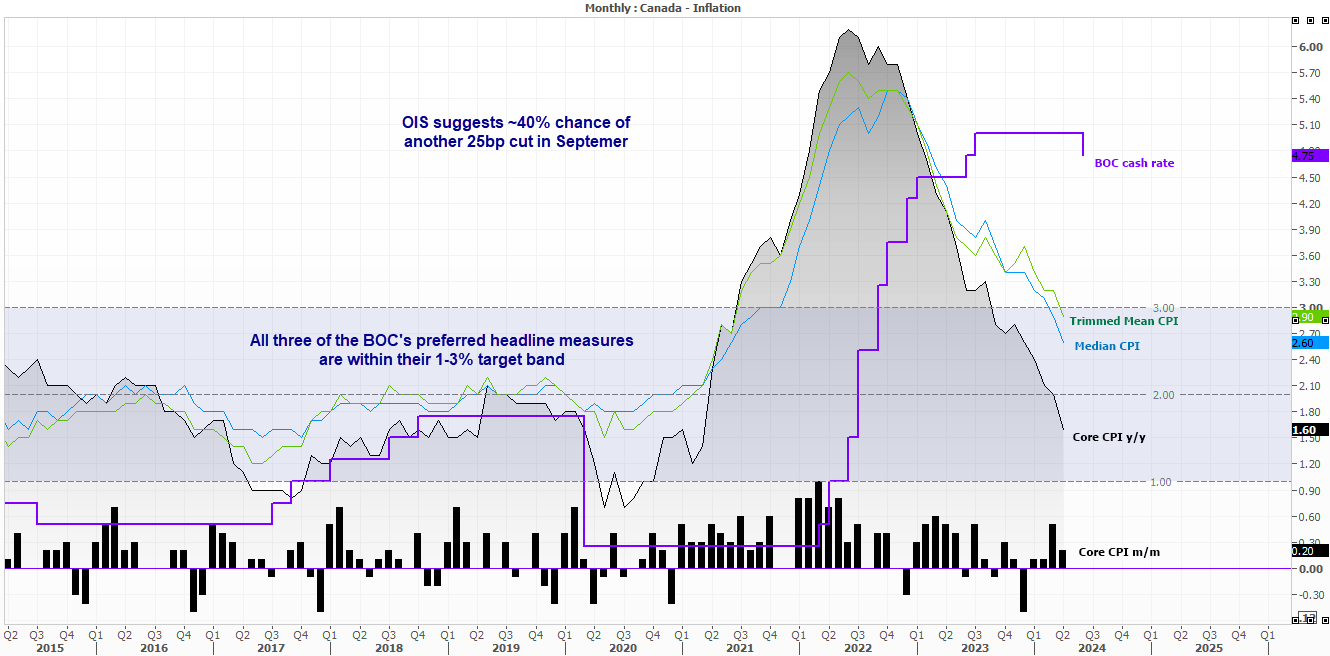
-- Written by Matt Simpson
Follow Matt on Twitter @cLeverEdge
How to trade with City Index
You can trade with City Index by following these four easy steps:
-
Open an account, or log in if you’re already a customer
• Open an account in the UK
• Open an account in Australia
• Open an account in Singapore
- Search for the market you want to trade in our award-winning platform
- Choose your position and size, and your stop and limit levels
- Place the trade









